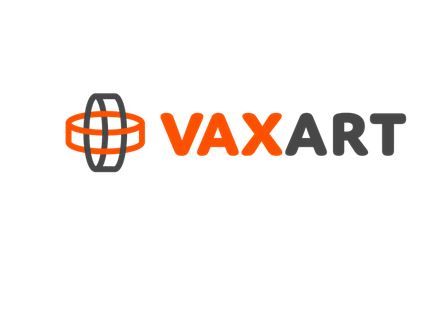- Clinical Technology
- Adult Immunization
- Hepatology
- Pediatric Immunization
- Screening
- Psychiatry
- Allergy
- Women's Health
- Cardiology
- Pediatrics
- Dermatology
- Endocrinology
- Pain Management
- Gastroenterology
- Infectious Disease
- Obesity Medicine
- Rheumatology
- Nephrology
- Neurology
- Pulmonology
Dosing Begins in Phase 2b Trial of Investigational Oral COVID-19 Vaccine Candidate
Vaxart's phase 2b trial for its oral COVID-19 vaccine follows a positive safety review and aims to enroll 10,000 participants in the US.
Vaxart, Inc. announced that it has initiated dosing in the 10,000-participant segment of its phase 2b clinical trial evaluating the relative safety, efficacy and immunogenicity of an oral COVID-19 vaccine against an approved mRNA COVID-19 injectable vaccine.
Courtesy of Vaxart, Inc

This head-to-head comparison in adults previously immunized against COVID-19 is an expansion from Vaxart's initial sentinel cohort of 400 participants and follows a positive 30-day safety review by an independent Data Safety Monitoring Board (DSMB). The review demonstrated the vaccine's continued viability as a needle-free alternative to traditional injectable COVID-19 vaccines and, based on the findings, the DSMB recommended continuing the trial without modifications.1
The phase 2b trial is a double-blind, multi-center, randomized, comparator-controlled study and aims to enroll participants representative of US demographics, with at least 25% of participants over age 65, the company stated, ensuring the study population reflects the diversity of potential vaccine recipients. The enrollment process is expected to require approximately 6 months, followed by a comprehensive 12-month follow-up period during which investigators will assess safety, immunogenicity, and efficacy endpoints while maintaining study blinding.2
“Initiating dosing in the 10,000-participant portion of this study is a significant step forward in the development of our oral COVID-19 vaccine candidate,” Steven Lo, CEO of Vaxart, said in a company statement. “Following the lift of the stop work order, we quickly reactivated our clinical trial sites, screened patients, and shipped clinical trial material that enabled us to start dosing patients. We look forward to progressing this trial and continuing to collaborate with our government partners."1
Vaxart's oral vaccine employs a proprietary pill delivery platform designed to elicit both systemic and mucosal immune responses, potentially offering superior protection at the primary site of viral entry compared to injectable vaccines, the company stated.2 The room temperature stability of the oral formulation addresses significant distribution challenges, particularly in resource-limited settings where cold chain requirements present logistical barriers to vaccination campaigns.2 Oral administration would also not require the presence of medical personnel.2
This research is supported through Project NextGen, a $5 billion federal initiative led by the Biomedical Advanced Research and Development Authority (BARDA) and the National Institute of Allergy and Infectious Diseases to accelerate development of next-generation COVID-19 vaccines and therapeutics. Vaxart has received up to $460.7 million in funding through the Rapid Response Partnership Vehicle Consortium, reflecting significant government investment in alternative vaccine delivery platforms.1,2
As the first US company to complete a phase 2 clinical trial of an oral COVID-19 vaccine, Vaxart's progress represents a potentially transformative approach to pandemic preparedness.1,2 The company is concurrently developing oral recombinant vaccines for other viral infections, including norovirus, influenza, and human papillomavirus, suggesting broader applications for their platform technology.2 The completion of this phase 2b trial will provide critical data on whether oral vaccination can achieve comparable or superior protection to current injectable options while offering practical advantages for global vaccination strategies.
References
1. Vaxart initiates dosing in 10,000-participant portion of phase 2b COVID-19 trial. News release. Vaxartm Inc. May 27, 2025. Accessed May 27, 2025. https://www.globenewswire.com/news-release/2025/05/27/3088551/25416/en/Vaxart-Initiates-Dosing-in-10-000-Participant-Portion-of-Phase-2b-COVID-19-Trial.html
2. Vaxart announces favorable DSMB review of sentinel cohort from COVID-19 phase 2b clinical trial. News release. Vaxart, Inc. January 13, 2025. Accessed May 28, 2025. https://investors.vaxart.com/news-releases/news-release-details/vaxart-announces-favorable-dsmb-review-sentinel-cohort-covid-19
Atopic Dermatitis: The Pipeline and Clinical Approaches That Could Transform the Standard of Care
September 24th 2025Patient Care tapped the rich trove of research and expert perspectives from the Revolutionizing Atopic Dermatitis 2025 conference to create a snapshot of the AD care of the future.
